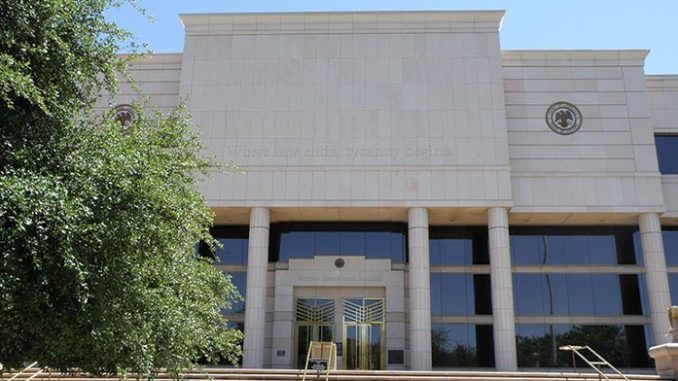
When the Arizona Secretary of State and the Arizona Board of Regents filed an ethics complaint in 2020 against Arizona Attorney General Mark Brnovich, it started a discussion about the unique ethical considerations a government attorney has toward a government client.
Those discussions will continue Thursday when the Arizona Supreme Court’s Task Force on Ethics Rules meets in Phoenix to review a draft version of Ethics Rule 1.19.
Arizona already has a special ethics rule which applies to government lawyers who are engaged as prosecutors. But the draft rule, titled Special Duties of a Government Lawyer, would apply to government attorneys in a non-prosecutorial role who are required by statute to fulfill a duty “while also complying with their ethical responsibilities” under existing court rules.
State law calls for the Arizona Attorney General’s Office to provide legal counsel to state-level election officials and state agencies, and to represent them in court actions. However, the two high-profile complaints against Brnovich led to the realization that the Arizona Supreme Court’s Rules of Professional Conduct does not sufficiently address certain situations which government attorneys can face which differ from those of a lawyer in private practice.
A draft of the new rule prepared by court staff has been released to the task force members in advance of its July 28 meeting. Among the highlights is a definition of a government lawyer –an attorney in a government “law firm” or agency such as the attorney general’s office, the state’s 15 county attorney’s offices, and attorneys employed by municipalities and other public entities.
The rules for a government lawyer would also apply to private practice lawyers retained or contracted by a government entity or a client representative.
The proposed new rule also requires a government law firm to identify who the government client is and who any client representatives may be. It would also be required to identify which persons have authority under Arizona law to make legal decisions on behalf of the government client.
Another part of the proposed ethics rule would require the government law firm to provide written confirmation of the firm’s representation to the government client’s authorized officials. This would address -at a minimum- the scope of representation, limitations on that representation, and issues of confidentiality.
The issue of confidentiality was key to the State Bar complaints filed in 2020 by Hobbs and the Arizona Board of Regents (ABOR) against Brnovich and some of his staff attorneys.
The Secretary of State complained that Brnovich had obtained various confidential communications while representing her office in a legal matter before dropping her as a client and then taking a position against Hobbs in the same case on behalf of another client.
In its filing to the State Bar, the ABOR complained Brnovich was supposed to provide legal counsel to the regents and the three state universities but instead had sued the ABOR on more than one occasion and had made highly critical public comments about some of the regents’ decisions.
At the time, a Brnovich spokeswoman said the complaints were made “to weaponize the State Bar process by filing politically motivated” bar complaints. However, Brnovich accepted a diversion agreement earlier this year which will lead to the complaints being dismissed after a negotiated period of time.
Key to the diversion agreement was a stipulation that the parties would seek “clarity” in the court’s rules of professional conduct, including what to do when the government client and the government attorney do not agree on a course of action.
Such disputes appear to be the genesis for proposed Rule 1.19(g)(2), which states a government law firm “must abide by an official’s decisions and defend an official’s action” provided it is within in the scope of the official’s authority, is lawful, and will not violate the law firm’s duty under other professional conduct rules.
While the emphasis of the proposed rule is on government lawyers, there is a provision which notes it is the responsibility of a government client to establish necessary policies in accordance with the entity’s “constitutional, statutory, or regulatory authority under Arizona law.”
And what happens if there is disagreement about legal strategy in a particular matter or simply a lack of harmony between attorney and client?
Under proposed Rule 1.19, the government lawyer does not automatically get to walk away. Instead, it would be the right of the government client to opt for outside counsel or stick with the government lawyer.
But if a change is made in representation, the government lawyer would not be permitted to represent another government client in adverse action against the other client.


